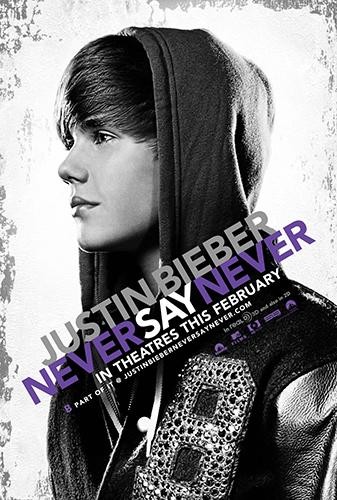At the beginning of Justin Bieber’s first, and hopefully only, musical biopic “”Never Say Never”” a Harkins Theatre employee told audience members that this was not a “”regular movie.””
And boy, was he right.
Regular movies include a plot, meaningful character development, conflict and resolution. This movie includes countless teeming masses of shrieking prepubescent shrews, less but infinitely more disturbing masses of shrieking post-pubescent shrews, and not one, but two slow motion Bieber hair flips.
In short, “”Never Say Never”” resists any sort of meaning, intrigue or impact. It instead chooses to substitute pointless cameos and distressingly copious amounts of teenage gyration.
Now, that might be fine for a music video running about five minutes. But that’s not the case. “”Never Say Never”” clocks in at 105 minutes — only four minutes shorter than Alfred Hitchcock’s “”Psycho,”” three minutes longer than “”Casablanca,”” and a whopping 10 minutes longer than “”Dr. Strangelove.”” I could continue, but let’s face it: Either way you slice it, 105 minutes for a movie that has roughly two minutes of total plot is pretty darn impressive.
Wait, that’s not right. What’s the opposite of impressive?
The basic story for the film is that Justin Bieber is a young, admittedly talented musician who picks himself up off the mean streets of Canada to live out his dream as a gratingly annoying, disturbingly androgynous teen idol. Far and away the best parts of the movie are the home videos of the Biebs performing as a child.
The infant Canuck’s talent is prodigious. I would question why there is so much home footage of him performing if his family never knew he would be famous, but such pointless paranoia borders on “”Obama forged his birth certificate so he could run for president one day”” territory.
The movie transitions from talking about young Bieber, who, strangely enough, looks older as an infant than he does now, to showing his preparation for a show at Madison Square Garden.
Camera crews follow Bieber for 10 days’ worth of shows and hilarious antics (sarcasm) leading up to his big moment in the spotlight.
This includes his battle with vocal chord swelling that might, gasp, make him miss his show.
Oh, no! Except, wait. They wouldn’t make a movie leading up to the show if he was forced to cancel it, so this subplot is entirely useless.
Thanks, movie, I want my 20 minutes back.
This movie is obviously geared toward people who like Justin Bieber’s music, not those expecting anything close to a satisfying cinematic experience.
Every film has an intended audience. But to exploit that audience’s boundless obsession without offering anything new is as wrong as the 20-something women who feel the need to explain that their all-encompassing love for Bieber is completely nonsexual, something that happens twice in the film.
While it is true I was inoculated against Bieber Fever long ago, the only point of making a movie is if you have a compelling tale to portray. For instance, Michael Jackson’s “”This Is It”” was a truly insightful look into the psyche of one of America’s most beloved artists, whereas “”Never Say Never”” is a cheap cash-in that scarcely tries to hide its exploitative nature.
There is an easy explanation for why Jackson’s film was much more satisfying than Bieber’s: Michael Jackson didn’t make a movie when he was 16 years old.
I don’t care how famous you are, or how much everyone loves you; there is virtually no one in the history of the world that has done enough by age 16 to justify having a feature film made about them. Prince Edward VI, King Tut, and Justin Timberlake notwithstanding.
Perhaps Bieber is truly the next great thing in pop music. Perhaps he will have a Jackson-esque existence where he transcends the boundaries of modern music to forge something wholly new that forever changes the landscape of entertainment. Perhaps he will change his ridiculous hair. But the fact of the matter is he hasn’t yet, and he sure as hell hasn’t done anything in his 16 years of life to merit his own feature film, or to merit the expenditure of the money you earned through much more worthwhile endeavors in order to see it.








